great britain
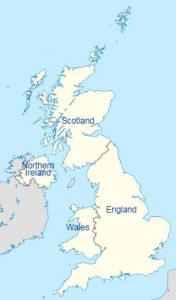 Many people may not be aware that in the United Kingdom of Great Britain, there is almost a constant state of confusion over just exactly who they are. They are considered Great Britain or the United Kingdom, but the United Kingdom takes in the countries of England, Scotland, Wales and Northern Ireland. It was on this day May 1, 1707 that England and Scotland joined together to become the United Kingdom. I think the union must have been a bit surprising, given that the English and the Scots had long battled over one thing or another. Nevertheless, The Scots needed the economic support that England could offer, while for England the merger was political. The Scots would no longer have a Parliment, but they were given instead a proportion of the seats at Westminster.
Many people may not be aware that in the United Kingdom of Great Britain, there is almost a constant state of confusion over just exactly who they are. They are considered Great Britain or the United Kingdom, but the United Kingdom takes in the countries of England, Scotland, Wales and Northern Ireland. It was on this day May 1, 1707 that England and Scotland joined together to become the United Kingdom. I think the union must have been a bit surprising, given that the English and the Scots had long battled over one thing or another. Nevertheless, The Scots needed the economic support that England could offer, while for England the merger was political. The Scots would no longer have a Parliment, but they were given instead a proportion of the seats at Westminster.
The English tend to call Great Britain, England, with notorious disregard for the feelings of the Welsh, with whom they joined in 1536 and the Scots, with whom they joined in 1707. The Act of Union of 1707, states merely that England and Scotland shall ‘be united into one kingdom by the name of Great Britain’. Many people simply lumped them together as Britain, calling all of them the Brits, which technically isn’t so…and even the English didn’t like that name. The last official merger was with Northern Ireland in 1800, at which time the enlarged kingdom became the United Kingdom of Great Britain.
It’s hard for me to think about being a country that is part of a kingdom, and yet, I suppose that is exactly what we were when the United States of America was part of England. Although we may not have been considered a part of a kingdom exactly, we were under British rule until the Revolutionary War. I suppose that there could be a love/hate relationship among the countries of the United Kingdom to this day. I do think that the British Royals do like to go to the different countries that are a part of the United Kingdom, and maybe 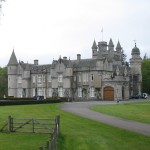
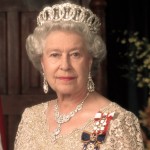 those countries like having them come for a visit now, but I have to wonder if that was always the case. Queen Elizabeth heads to her Scottish castle, Balmoral, at this time of the year, so she must love the whole Scottish countryside at least almost as much as she does England. For Queen Elizabeth, having a castle in Scotland is normal. I suppose that if you grew up being a part of a kingdom, it would be normal, and in all reality, while it wasn’t always a kingdom, it has been since 1536, so it might as well have been always…at least for the people who call the United Kingdom of Great Britain home.
those countries like having them come for a visit now, but I have to wonder if that was always the case. Queen Elizabeth heads to her Scottish castle, Balmoral, at this time of the year, so she must love the whole Scottish countryside at least almost as much as she does England. For Queen Elizabeth, having a castle in Scotland is normal. I suppose that if you grew up being a part of a kingdom, it would be normal, and in all reality, while it wasn’t always a kingdom, it has been since 1536, so it might as well have been always…at least for the people who call the United Kingdom of Great Britain home.
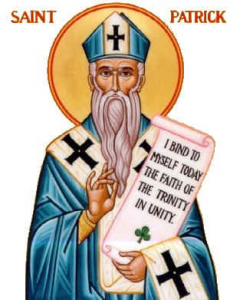 Many holidays get their start on the birth or death of someone famous or very special, and Saint Patrick’s Day is no exception. It was the day that Saint Patrick died in Saul, Ireland. I’m sure that wasn’t surprising to anyone. So, the question then becomes, who was Saint Patrick, and why is he being honored?
Many holidays get their start on the birth or death of someone famous or very special, and Saint Patrick’s Day is no exception. It was the day that Saint Patrick died in Saul, Ireland. I’m sure that wasn’t surprising to anyone. So, the question then becomes, who was Saint Patrick, and why is he being honored?
Saint Patrick was a Christian missionary, bishop, and apostle of Ireland, but that in and of itself was not what made him famous. He lived in a time in history when little would be known of a person’s life if no one took the time to write things down. The Internet, Facebook, and Twitter were far off in the very distant future, so people wrote letters and kept journals. Saint Patrick wrote a book that he titled, “Confessio”, during his last year of life, and it is from these writings that we know what we know of him.
Saint Patrick was born in Great Britain probably in Scotland, to a wealthy Christian family of Roman citizenship. At the age of about 16 years, he was captured be Irish marauders and made to be a slave. For the next six years he worked as a herder in Ireland. Due to the long lonely days, far from family and other human companionship, he drew closer and closer to God for comfort. After hearing a voice in a 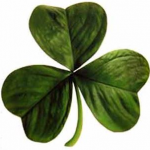 dream one night, he escaped and found passage on a ship that took him back to Great Britain and his family. Once he was back with his family, he had another dream. In the dream someone named Victoricus gave him a letter entitled “The Voice of the Irish.” He felt like the Irishmen were pleading with him to go back to Ireland.
dream one night, he escaped and found passage on a ship that took him back to Great Britain and his family. Once he was back with his family, he had another dream. In the dream someone named Victoricus gave him a letter entitled “The Voice of the Irish.” He felt like the Irishmen were pleading with him to go back to Ireland.
In 433, he returned to Ireland, after studying to become an ordained Christian minister and started preaching the Gospel. Thousands of Irishmen were converted to Christianity and many churches were built all around Ireland. After 40 years of devoting his life to God and His work, Saint Patrick died on March 17, 461, in the town of Saul, Ireland, which is where he built his first church.
Since his passing, many legends have grown up about him. He was made the patron saint of Ireland, and 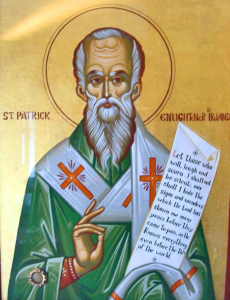 people say that he baptised hundreds of people in a single day. He is also said to have used a three-leaf clover, which became the famous shamrock to describe the Holy Trinity. He is portrayed as trampling snakes because it is said that he had driven them out of Ireland. The Irish observe the day of his passing as a national holiday, attending church in the mornig and celebrating with food and drink in the afternoon. Later the rest of the world jumped on board, and the first Saint Patrick’s Day parade was celebrated in the United States, and involved Irish soldiers serving in the English military marching through the streets of New York City in 1762. The parades became a show of unity and strength for the Irish-American immigrants and the party went global in 1995 when the Irish government started a campaign to matket Saint Patrick’s Day as a way of driving tourists to Ireland. Today, March 17th is still celebrated by millions of people, many of whom probably have no idea what this man stood for. It’s something to think about for sure. Happy Saint Patrick’s Day!!
people say that he baptised hundreds of people in a single day. He is also said to have used a three-leaf clover, which became the famous shamrock to describe the Holy Trinity. He is portrayed as trampling snakes because it is said that he had driven them out of Ireland. The Irish observe the day of his passing as a national holiday, attending church in the mornig and celebrating with food and drink in the afternoon. Later the rest of the world jumped on board, and the first Saint Patrick’s Day parade was celebrated in the United States, and involved Irish soldiers serving in the English military marching through the streets of New York City in 1762. The parades became a show of unity and strength for the Irish-American immigrants and the party went global in 1995 when the Irish government started a campaign to matket Saint Patrick’s Day as a way of driving tourists to Ireland. Today, March 17th is still celebrated by millions of people, many of whom probably have no idea what this man stood for. It’s something to think about for sure. Happy Saint Patrick’s Day!!
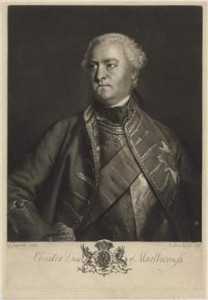 The dukedom of Marlborough is one of the titles in the Peerage of England. The Peerage of England comprises all peerages created in the Kingdom of England before the Act of Union in 1707. In that year, the Peerages of England and Scotland were replaced by one Peerage of Great Britain. The peerage is a legal system of largely hereditary titles in the United Kingdom, which is constituted by the ranks of British nobility and is part of the British honors system. The dukedom of Marlborough was created by Queen Anne in 1702, for John Churchill, who was the 1st Duke of Marlborough.
The dukedom of Marlborough is one of the titles in the Peerage of England. The Peerage of England comprises all peerages created in the Kingdom of England before the Act of Union in 1707. In that year, the Peerages of England and Scotland were replaced by one Peerage of Great Britain. The peerage is a legal system of largely hereditary titles in the United Kingdom, which is constituted by the ranks of British nobility and is part of the British honors system. The dukedom of Marlborough was created by Queen Anne in 1702, for John Churchill, who was the 1st Duke of Marlborough.
I can’t say that I completely understand all there is to about the peerage of Great Britain, but in the peerage, a Duke is a higher rank than a Marquess, Earl, Viscount and Baron. Thus Prince William is the Duke of Cambridge, because as the prince, it would not be right for him to have a lower rank than other members of the peerage. Originally dukes were the rulers of the provinces of the Roman Empire. Now however, the title of duke has become in almost all cases a nominal rank, without possession of an actual principality. The province that a duke was titled over, is known as a duchy. As I said, in modern times dukes aren’t really over a duchy, with the exception of Lancaster and Cornwall, both of which do include land and ownership. Lancaster belongs to Queen Elizabeth II and Cornwall to Prince Charles. The title of duke cannot normally be handed down to female heirs, but the Dukedom of Marlborough is the exception to that rule. It is one of the few titles that allows females to inherit the title, and the only current dukedom to do so.
In the Spencer family, there have been a number of titles, but it wasn’t until Charles Spencer, 3rd Earl of Sunderland, widowed following the death of his first wife, Arabella, daughter of Henry Cavendish, 2nd Duke of  Newcastle, married Anne Churchill, that the Dukedom of Marlborough first came to the Spencers. With this dukedom, Charles Spencer was first introduced to politics, making this alliance between Sunderland and Marlborough a very important one for Charles and his descendants. From his marriage to Anne Churchill who would become the 2nd Duke of Marlborough, the Spencer family would retain the dukedom for all time. At the current time, the dukedom is at 12, with Charles James Spencer-Churchill, 12th Duke of Marlborough, born in 1955, as the current duke.
Newcastle, married Anne Churchill, that the Dukedom of Marlborough first came to the Spencers. With this dukedom, Charles Spencer was first introduced to politics, making this alliance between Sunderland and Marlborough a very important one for Charles and his descendants. From his marriage to Anne Churchill who would become the 2nd Duke of Marlborough, the Spencer family would retain the dukedom for all time. At the current time, the dukedom is at 12, with Charles James Spencer-Churchill, 12th Duke of Marlborough, born in 1955, as the current duke.
To date, I cannot say how many dukes and duchesses were or are Spencer descendants, for names change with marriages over the years. Nevertheless, the Spencers have played a great part in the peerage of Great Britain, and with Prince William and his descendants, beginning with Prince George, the Spencers will continue to have great influence in that nation for the rest of time.
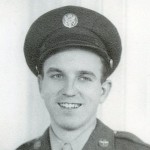 Sometimes we think we know the whole story, and other times, we are pretty sure we don’t know the story at all. For me, the attack of Pearl Harbor is one that has seemed somewhat fuzzy. I mean I know that the Japanese attacked Pearl Harbor without warning on December the 7th of 1941…but why exactly. I have to wonder if I am the only one who isn’t exactly sure why my dad had to go to war in March of 1943 at the age of 18 years, along with several uncles. I know that his family knew that it was coming, and they were dreading it very much, but it was inevitable. We had been attacked. We must retaliate when we are attacked!! I understood that…but why were we attacked, and was it without provocation?
Sometimes we think we know the whole story, and other times, we are pretty sure we don’t know the story at all. For me, the attack of Pearl Harbor is one that has seemed somewhat fuzzy. I mean I know that the Japanese attacked Pearl Harbor without warning on December the 7th of 1941…but why exactly. I have to wonder if I am the only one who isn’t exactly sure why my dad had to go to war in March of 1943 at the age of 18 years, along with several uncles. I know that his family knew that it was coming, and they were dreading it very much, but it was inevitable. We had been attacked. We must retaliate when we are attacked!! I understood that…but why were we attacked, and was it without provocation?
Then I came across something that happened on Dec 1, 1941. This was the day that the Japanese made the decision to attack Pearl Harbor. This had been a possibility since the 1920s, but in 1931, with the Japanese invasion of Manchuria things got really tense. Japan was insistent on invading other countries, and were slowly moving into China. Beginning in 1938, the United States adopted increasingly tighter trade restrictions with Japan. Nevertheless, Japan would not be deterred from its expansionist policies, or from signing the Tripartite Pact in 1940 with Nazi Germany and Fascist Italy, officially forming the Axis Powers. In 1940, Japan invaded French Indochina so they could embargo all imports into China including war supplies from the United States. Some of these facts I knew, and some I didn’t. This is, of course, a very shortened version, but you can see that Japan was becoming increasingly more dangerous to the world, and to everyone in it.
On November 7, 1941, Secretary of State, Cordell Hull warned President Franklin Roosevelt’s cabinet that an 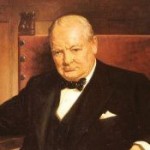 attack on the United States by Japan could happen at any time…without warning. On November 9th, Winston Churchill, who is my 15th cousin once removed, told the United States that if we went to war with Japan, the British Empire would declare war on Japan “within the hour.” It was a heavy responsibility for the United States, and for Secretary of State Hull. Nevertheless, something had to be done, and the world was looking to the United States to make the first move.
attack on the United States by Japan could happen at any time…without warning. On November 9th, Winston Churchill, who is my 15th cousin once removed, told the United States that if we went to war with Japan, the British Empire would declare war on Japan “within the hour.” It was a heavy responsibility for the United States, and for Secretary of State Hull. Nevertheless, something had to be done, and the world was looking to the United States to make the first move.
The decision to go to war is a difficult one, and one that I do not believe any civilized nation takes lightly. I’m sure that is why so many presidents have tried every possible restriction against some of the crazy dictators in this world. The problem is that so many of those dictators are not moved from their agendas…no matter what. Secretary of State Hull decided to try one more time, and so he wrote the Hull Note on November 26, 1941, which outlined ten proposals, some of which matched earlier Japanese proposals, but of others, Hull knew meant he was basically declaring war on Japan. The agreement would have to be made by November 29, and of course, history tells us that Japan did not agree. While Australia tried an offer to act as mediator between the United States and Japan on November 29th, they were told that the opportunity to settle this was past. On December 1, 1941, Japan’s Emperor Hirohito declared war against the United States, Britain, and the Netherlands, after rejecting the demands of the United States in the Hull Note, which the Japanese later dubbed The Hull Ultimatum, as a way of making the United States look like they were to blame for all this.
It was this action…on this day in history, and the events leading up to this action, and those that would follow, including the attack on Pearl Harbor on December 7, 1941 that drew the United States and our allies into World War II, and that would ultimately bring about my dad’s part in that war…as well as the part played by so many others, including a number of my uncles. War is a horrible event, and one that I truly don’t believe anyone 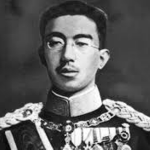 wants to be a part of, but sometimes it is inevitable. When a nation, such as Japan decides to take over the world…one weaker country at a time, someone has to step up and put a stop to it. Unfortunately, history has placed that responsibility in the hands of the United States many times. There are people who think we should just stay out of it, but if we did, just how long would it be before that nation came after us, because we appeared weak too. We might be able to fight them off…unless we have allowed our military might to be reduced to a point of making us as weak as some of these other nations. If we couldn’t fight them off, then our nation would lose it’s many freedoms, and we would find ourselves living under a dictator too. While I hate war too, I am not willing to lose the freedoms our military personnel have fought so hard for…are you?
wants to be a part of, but sometimes it is inevitable. When a nation, such as Japan decides to take over the world…one weaker country at a time, someone has to step up and put a stop to it. Unfortunately, history has placed that responsibility in the hands of the United States many times. There are people who think we should just stay out of it, but if we did, just how long would it be before that nation came after us, because we appeared weak too. We might be able to fight them off…unless we have allowed our military might to be reduced to a point of making us as weak as some of these other nations. If we couldn’t fight them off, then our nation would lose it’s many freedoms, and we would find ourselves living under a dictator too. While I hate war too, I am not willing to lose the freedoms our military personnel have fought so hard for…are you?

